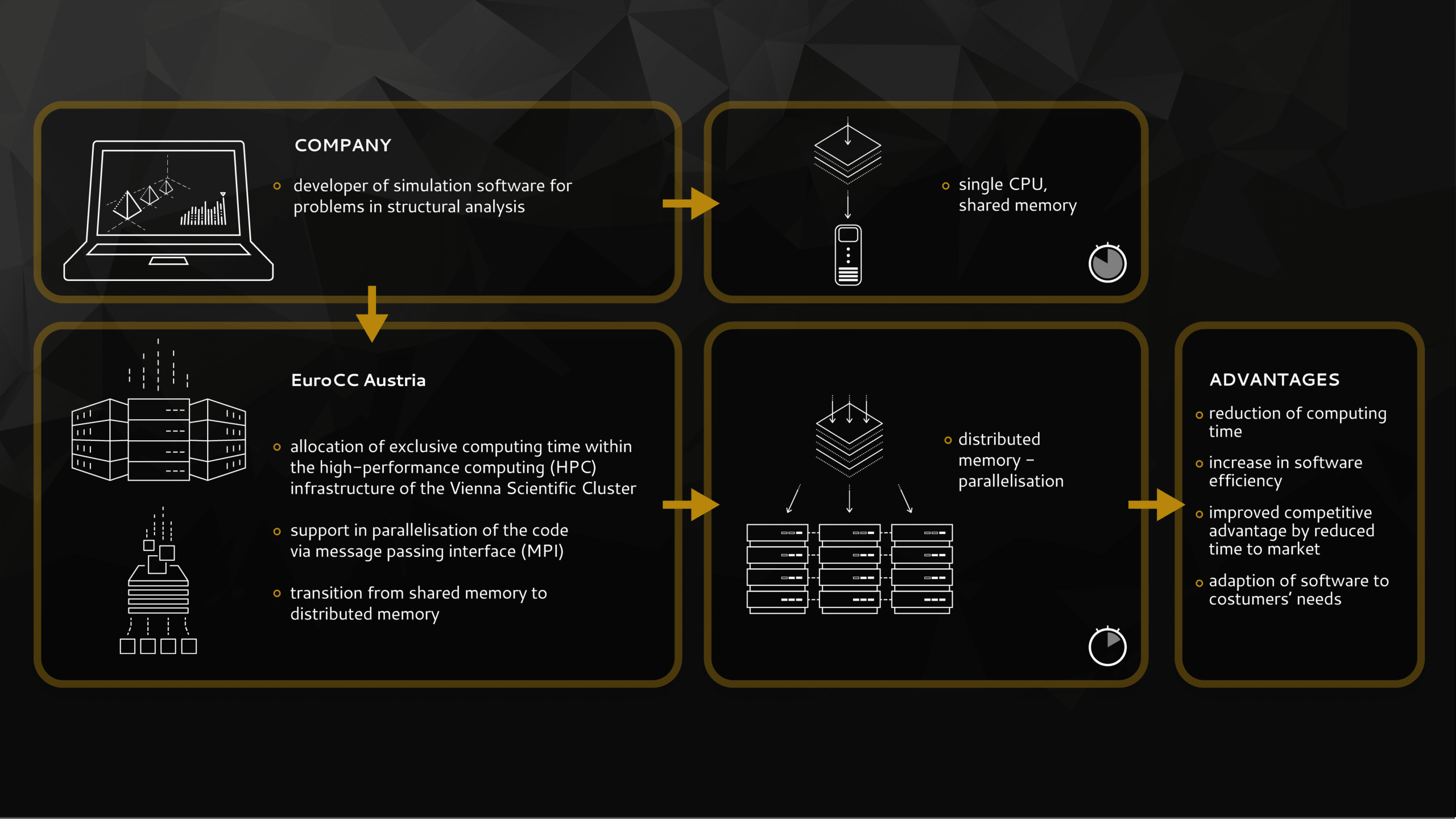National Competence Centre for Supercomputing, Big Data and Artificial Intelligence

EuroCC Austria helps businesses, academia and the public sector to adopt and leverage High-Performance Computing (HPC), High-Performance Data Analytics (HPDA) and Artificial Intelligence (AI).
HPC enables fast execution of complex calculations for advanced modelling, computer simulation, big data analytics, and development of AI models. These tasks require considerable computing resources and optimised software solutions.
By collaborating with EuroCC Austria, Austrian companies can get all-round support and access to national and European HPC systems without having to build and operate their own infrastructure. This way, HPC users can benefit from technical expertise, cost-effective services, and the uptake of HPC/Big Data/AI in order to accelerate computing tasks and streamline product development.
EuroCC Austria is operated by the University of Vienna, the Technical University of Vienna and the University of Natural Resources and Life Sciences Vienna (as part of the Vienna Scientific Cluster Consortium), in close cooperation with the business incubator INiTS.
Your application of HPC/Big Data/AI
- Modelling and simulation of physical phenomena
- Training ML models
- Working with Digital Twins
- Visualisation and processing of large data sets
- Code and software optimisation
- Solving complex computational problems
- Optimising product development and reducing time-to-market
Our service and support in HPC/Big Data/AI
- Assitance with your projects and funding applications
- Facilitation of access to software and supercomputers
- Connecting stakeholders, experts and infrastructure providers
- Training in HPC computing, parallel programming, and more
HPC Benefits
High processing power & memory capacity
- Billions of operations per second
- Parallel processing
- Distributed Memory
Data security
- Secure data access and transfer
- Data is processed on local servers and remains in the country
Time and cost efficiency
- Cost reduction through high performance
- Optimised prototyping through simulation
- Funding opportunities
How would that look in practice?
